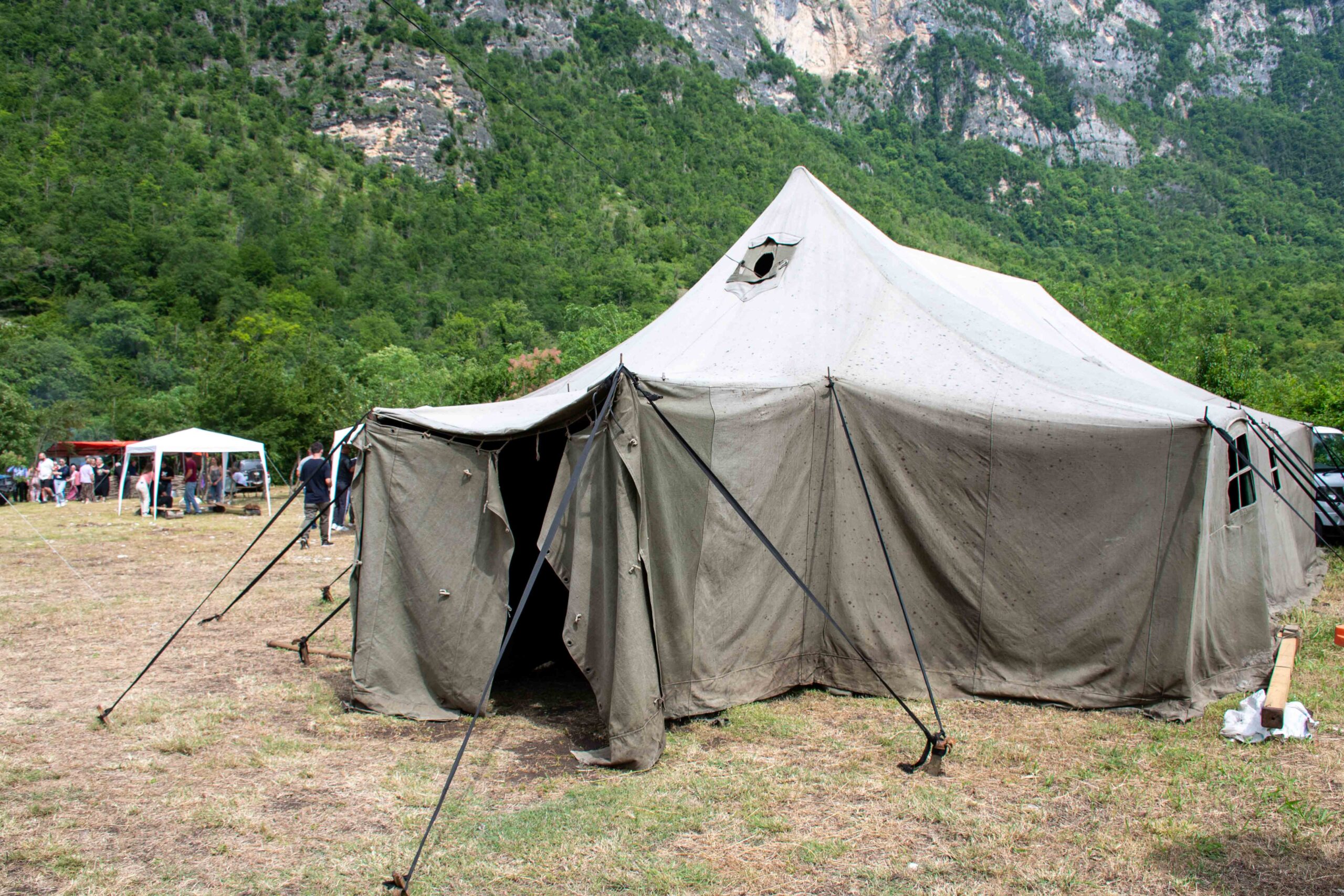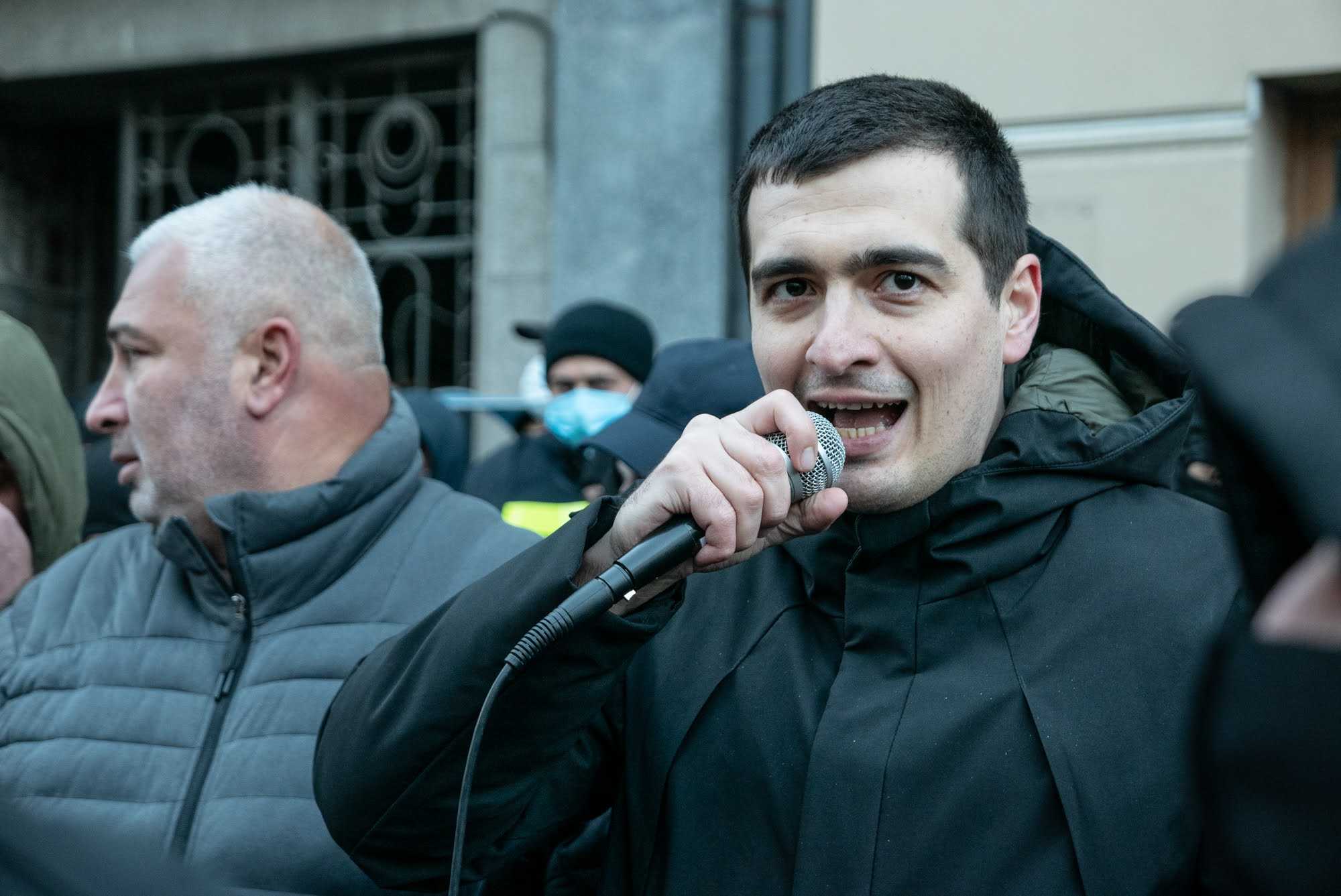
Georgia’s ruling party has passed controversial amendments to the country’s law on protest, which critics warn will severely restrict freedom of assembly. The amendments were proposed following claims by the country’s security service that international groups aimed to incite violent civil unrest in the country later this year.
On Thursday, the parliamentary majority passed the bill in its third reading. The bill was approved with 74 votes in favour and 20 votes against.
Hours before the final vote, protesters set up small tents outside the parliament in defiance of the proposed amendments.
The amended Law on Assemblies and Demonstrations will prohibit protesters from erecting ‘temporary constructions’ that are considered to cause a threat to protesters, prevent police maintaining public order, or obstruct the ‘normal operation’ of an enterprise.
People may also be fined for erecting temporary constructions if they are deemed ‘not essential’ or ‘not related’ to the gathering.
The ambiguous language of the amendments has raised suspicions that its writers — seven majority MPs — and their party intended to prohibit the use of tents, stages, sound equipment, and bringing and using firewood to keep warm during the rallies.
Aside from having their construction confiscated, protesters could face up to 15 days in administrative detention and a ₾500 ($187) fine. The fine would be up to ten times larger if the offender was a demonstration organiser.
The current version of the Law on Assemblies and Demonstrations already allows for limitation of the freedom to protest when it interferes with public transportation or access to and functioning of government agencies; a measure that has been used frequently.
Staving off a revolution
The ruling party MPs tabled their initiative days after Georgia’s State Security Service (SSG) announced that they were investigating a coup being plotted by a group including Ukraine’s deputy director of counterintelligence, Georgian volunteers fighting against Russia in Ukraine, and a former bodyguard of ex-president Mikheil Saakashvili.
SSG claimed that in the event that the EU refused to grant Georgia membership candidacy status later this year, those involved planned to organise a ‘city of tents’ in Tbilisi between October and December, allegedly additionally planning to detonate a bomb in one of the tents during street protests to incite violent unrest.
‘It has been established that the organisers are considering implementing in Georgia a scenario similar to Euromaidan in Ukraine in 2014’, the SSG claimed on 18 September, referring to the wave of protests that followed then-President Viktor Yanukovych’s decision not to sign an association agreement with the European Union, in favour of closer ties with Russia. Yanukovych and his government were ousted after three months of protests.
Four days after the SSG’s statement, pro-Russian extremist group Alt Info announced the launch of an ‘Anti-Maidan movement’ to, as they put it, stop the West from organising a coup in Georgia.
‘If you don’t want to see Tbilisi burnt, [bodies of] your family members tattered and dropped on the streets, if you don’t want Georgia to lose more territories, you are going to have to fight’, Zura Makharadze, one of the leaders of Alt Info, warned on 25 September.
Alt Info’s messages have consistently closely aligned with the ruling party’s rhetoric, which has also repeatedly warned of the threat of war in Georgia.
After the SSG was chastised by opposition-aligned media for failing to provide evidence for its assertion, it held a briefing on 2 October at which it accused the US Agency for International Development (USAID) of training Georgian activists how to plan a revolution, and stated that an investigation into the matter was ongoing.
[Read more: Georgia’s ruling party accuse USAID of preparing activists for revolution]
At the briefing, the SSG released footage which it described as showing three members of the Serbian Canvas group, brought to Georgia by USAID, teaching activists how to enact violent unrest and regime change. The voices heard in the footage describe their experience of protest and activism, and strategic approaches to protest.
A number of the ruling party’s senior figures swiftly repeated the accusations, with parliamentary speaker Shalva Papuashvili claiming that the training aimed to bring about the ‘the collapse of the state’ and ‘provoke violence’. The US Embassy dismissed the allegations as entirely false.
The authors of the bill directly cited the SGG’s claims as justifying their proposal.
‘In accordance with the Georgian Constitution and the positive responsibility of the state stipulated by the European Convention on Human Rights, relevant state agencies of Georgia are obligated to take reasonable actions to repel the aforementioned threat,’ the bill’s explanatory note reads.
Despite opposition MP Teona Akubardia stating that an ongoing investigation could not be used to argue for legal changes, the parliamentary bureau sent the draft bill to separate committees for expedited review. It was approved by the human rights and legal affairs committees on 2 October.
The amendments have been fiercely criticised by parliamentary groups including the United National Movement (UNM), Euro-optimists, and For Georgia, and rights groups including the Georgian Young Lawyers’ Association and Georgian Democracy Initiative.
The UNM stated on Wednesday that the bill ‘directly served the interests of the Russian Federation’.
‘[Russia] aims to turn Georgia into a country similar to Belarus and Russia instead of a democratic state ’, the UNM stated on Wednesday.
Other parties have similarly described the amendments as ‘another Russian law’, in reference to the ruling party’s failed March initiative to tighten control on civil society organisations in Georgia and label them ‘agents of foreign influence’. Then, Georgian Dream failed to persuade protesters that their initiative was based on American rather than Russian legislation.
Local watchdog groups have criticised the Georgian Dream-led government for repeatedly obstructing demonstrators attempting to set up tents in Tbilisi, including Beka Grigoriadis in May, Zaza Saralidze in 2018, and green group Guerilla Gardeners in 2016. Tents have been central to a number of impactful Georgian protests, including against the UNM-led government in the late 2000s, hydropower plants in Imereti, and by miners demanding better working conditions in Chiatura.
On 4 October, Georgian Public Defender Levan Ioseliani joined others in criticising the law. Ioseliani stated that the draft law lacked a legitimate goal to warrant ‘such intense restriction of freedom of expression’.

The initiative was also slammed by the western-Georgian environmental grassroots group Saving Rioni Valley, which recently launched a campaign against the privatisation of public lands in Georgia’s Racha region using tents, a hallmark of their protests.







